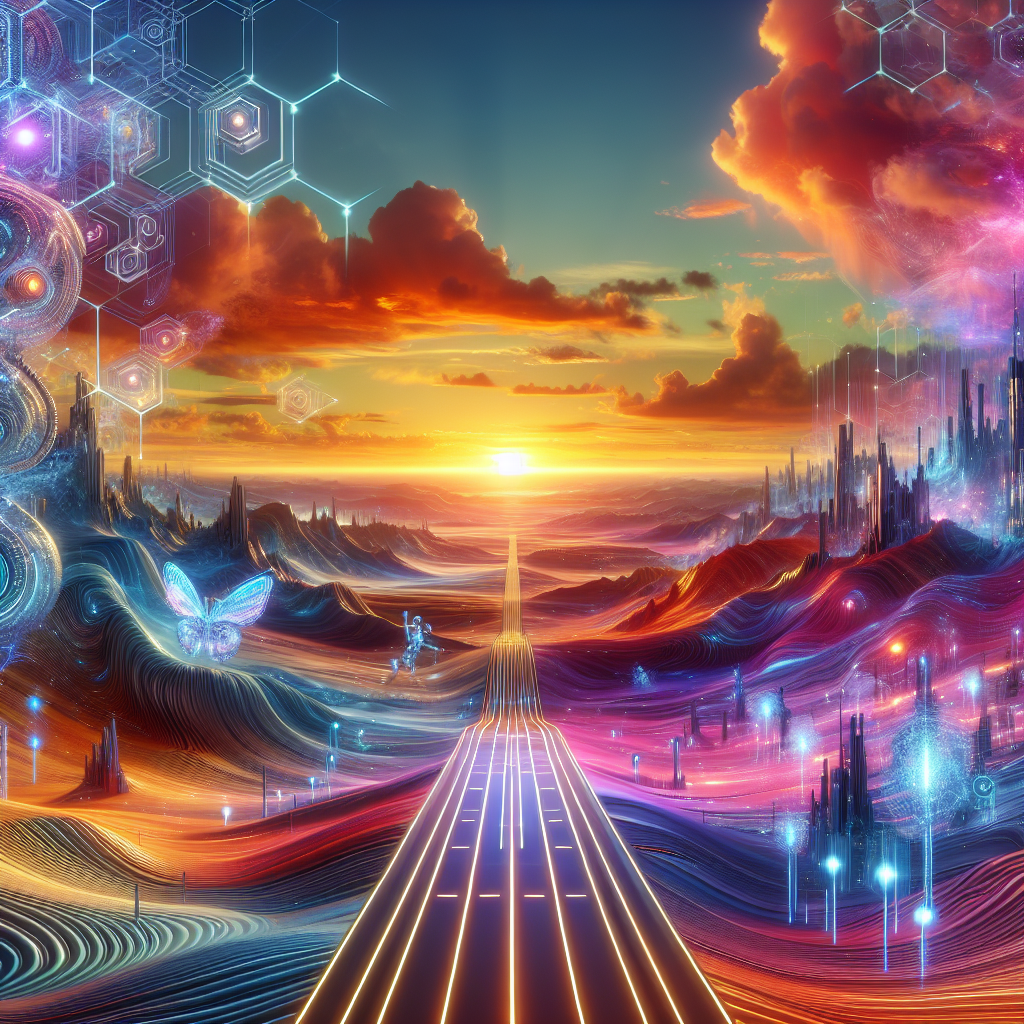Artificial Intelligence (AI) has already made significant strides in various fields such as healthcare, finance, and transportation. However, one area that is just beginning to explore the possibilities of AI is the creative landscape. From music composition to visual arts, AI is starting to play a role in shaping the future of creativity.
The use of AI in the creative process is a topic of much debate and discussion. Some see it as a tool that can enhance human creativity, while others worry that it may replace human artists altogether. In this article, we will explore the current state of AI in the creative landscape and discuss its potential future impact.
Current State of AI in the Creative Landscape
AI is already being used in various creative fields to assist artists and creators in their work. One of the most well-known applications of AI in the creative landscape is in music composition. AI algorithms can analyze vast amounts of music data and generate new compositions based on patterns and styles found in existing music. Companies like Amper Music and Jukedeck are already offering AI-generated music for commercial use.
In the visual arts, AI is being used to create original artworks and assist artists in the creative process. For example, the Google DeepDream project uses AI algorithms to generate surreal and dreamlike images based on input from the user. AI art generators like DeepArt and Prisma allow users to transform their photos into works of art inspired by famous artists like Van Gogh and Picasso.
AI is also being used in the film and entertainment industry to create special effects, enhance CGI animation, and even write scripts. The use of AI in film production can help reduce costs and streamline the creative process by automating tasks like rendering and compositing.
Future Impact of AI in the Creative Landscape
The future of AI in the creative landscape is still uncertain, but there are several potential ways in which AI could transform the creative process.
One possibility is that AI could help artists and creators overcome creative blocks and inspire new ideas. By analyzing large datasets of creative works, AI algorithms can identify patterns and trends that can help artists generate new and innovative ideas. AI can also assist in the editing and revision process by providing feedback on drafts and suggesting improvements.
Another potential impact of AI in the creative landscape is the democratization of creativity. AI tools can help users with limited artistic skills create professional-looking artworks, music, and videos. This can empower a new generation of creators who may not have had access to traditional artistic training.
However, there are also concerns about the impact of AI on the creative landscape. Some worry that AI-generated content may lack the emotional depth and authenticity of human-created art. There are also ethical concerns about the implications of AI-generated content on copyright and intellectual property rights.
FAQs
Q: Will AI replace human artists in the creative process?
A: While AI can assist artists and creators in their work, it is unlikely to replace human artists altogether. AI lacks the emotional depth and intuition that human artists bring to their work. Instead, AI is more likely to be used as a tool to enhance human creativity.
Q: How can I use AI in my creative work?
A: There are many AI tools available that can help artists and creators in their work. From music composition to visual arts, there are AI algorithms that can assist in generating ideas, creating artworks, and enhancing the creative process.
Q: Are there ethical concerns about using AI in the creative process?
A: There are ethical concerns about the implications of AI-generated content on copyright and intellectual property rights. As AI becomes more prevalent in the creative landscape, it is important for artists and creators to consider the ethical implications of using AI in their work.
In conclusion, the future of AI in the creative landscape is still being explored, but there is no doubt that AI has the potential to transform the way we create and consume art. By using AI as a tool to enhance human creativity, artists and creators can push the boundaries of what is possible in the creative process. As AI continues to evolve and improve, it will be exciting to see how it shapes the future of creativity.

